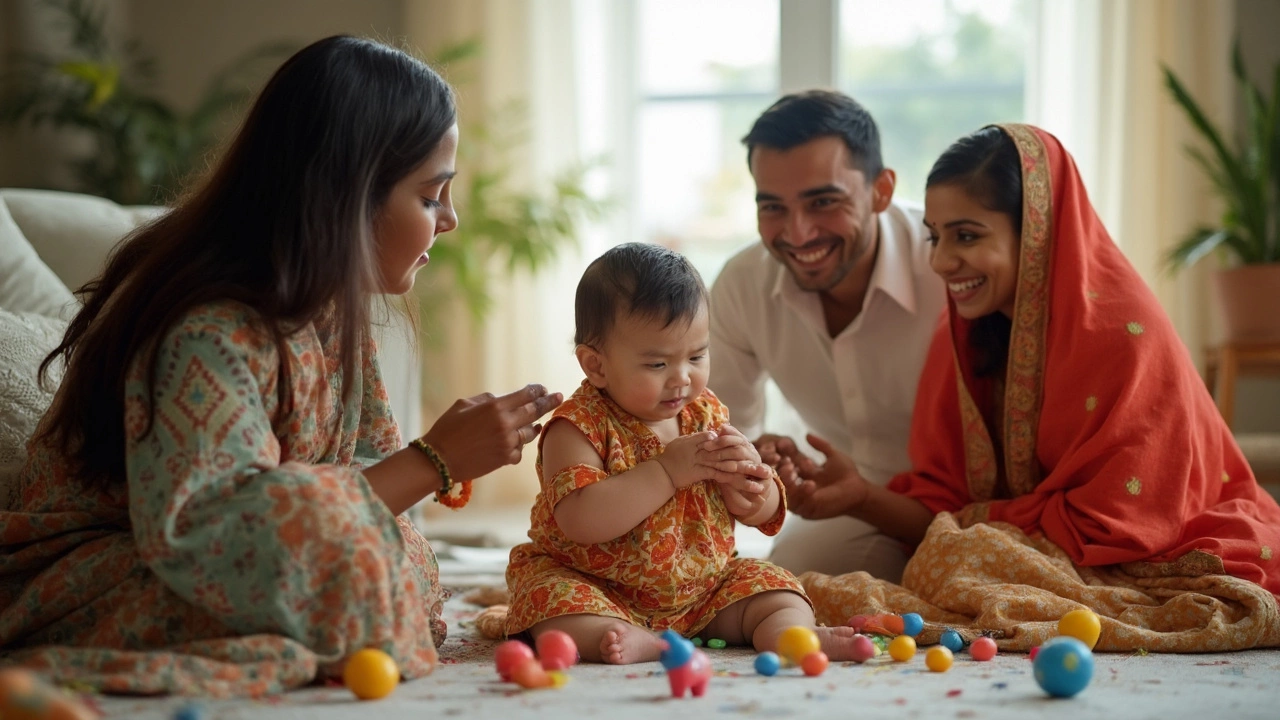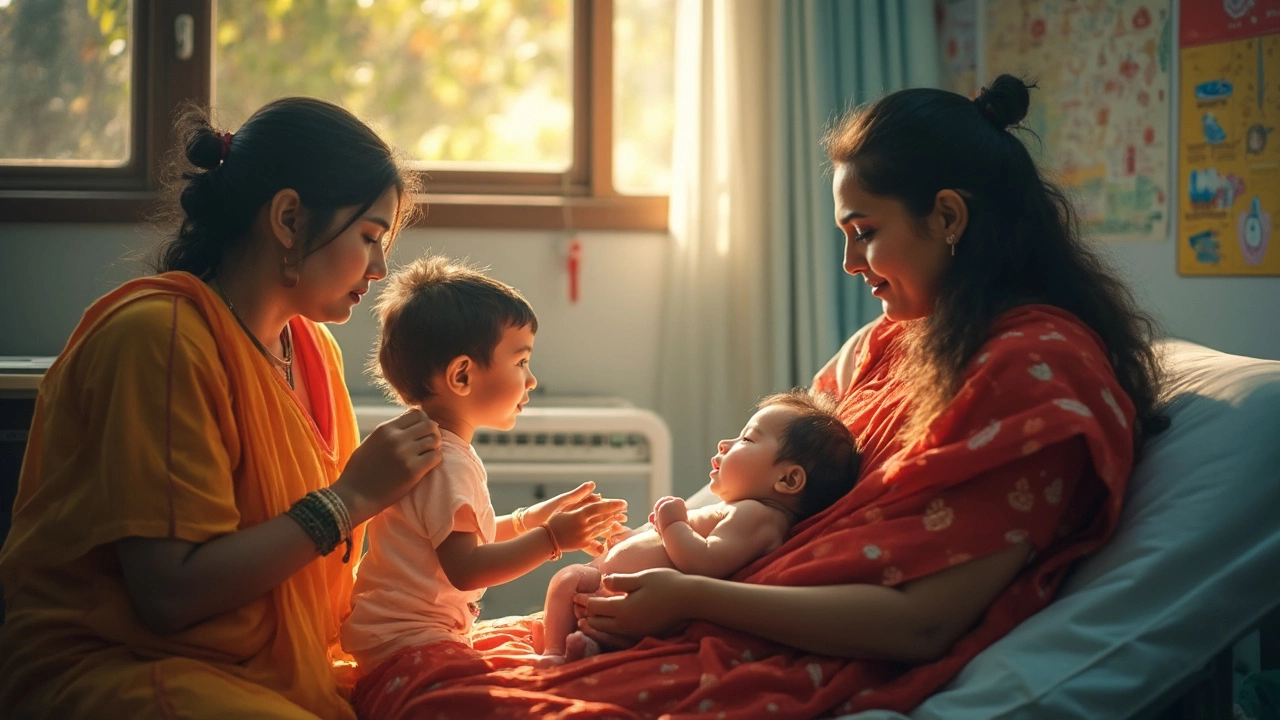The moment you start thinking about IVF, one big question usually jumps out: Are IVF babies as healthy as babies conceived naturally? You’re not alone. Loads of parents—maybe even some of your friends—have wondered the same thing. Let’s break down what really matters, without the medical mumbo jumbo.
First off, IVF babies are born every single day around the world. Since the first IVF baby, Louise Brown, came into the world in 1978, millions more have followed. Doctors, scientists, and parents have been keeping a very close eye on their health and development. The big surprise? Most IVF kids are just as healthy as anyone else. They go to school, play football, catch colds, and outgrow their clothes just like all kids do.
Of course, IVF isn’t magic, and a few things can raise the risk of health issues—like if parents are older or if twins or triplets show up. But that’s not just an IVF thing, it’s true for any pregnancy. Plus, clinics these days know how to spot problems early and give both mom and baby extra support along the way.
- IVF Baby Health: What the Evidence Shows
- Comparing IVF and Naturally Conceived Children
- What Doctors Check for After IVF
- Tips for Giving IVF Babies a Healthy Start
IVF Baby Health: What the Evidence Shows
Let’s get real—everyone wants to know if IVF babies are truly healthy. Here’s what the research and experts have found so far. Millions of kids have been born thanks to IVF since the late '70s, and that’s a big pool to look at. Study after study says most IVF babies grow up just like any other kid. They hit the usual milestones—walking, talking, playing, and learning—right on track.
If you’re looking for numbers, here’s something solid: a 2023 study that followed over 260,000 kids in Europe found that about 98% of IVF babies were born healthy, with no major birth defects. Rates of certain issues, like low birth weight or being born a little early, may be a bit higher, but that’s often because more twins or triplets come with IVF. Singleton IVF babies—meaning just one baby at a time—have health outcomes almost identical to those who are conceived naturally.
Here’s a quick peek at what’s been seen in the research:
- Most IVF kids have normal physical and mental development.
- They perform the same at school as their classmates.
- They catch the same bugs, move up school years together, and play sports just like everyone else.
Healthcare teams do keep an eye out for things like premature birth or slight risks of certain rare conditions, but the differences are tiny. Genetics, the parents’ age, and lifestyle seem to have a bigger say than IVF itself.
Doctors and scientists aren’t just guessing—they check up on these kids for years. So if anyone could spot trouble, they’d know by now. Most clinics also share this info upfront so parents are never in the dark.
| Factor | IVF Babies | Naturally Conceived Babies |
|---|---|---|
| Healthy at Birth (%) | ~98 | ~99 |
| Preterm Birth (%) | ~10 | ~7 |
| Major Birth Defects (%) | ~2 | ~1.5 |
Bottom line: most kids born through IVF are healthy, happy, and just as energetic as any other children you see at the park or in class.
Comparing IVF and Naturally Conceived Children
This is the thing most people want a straight answer to: Are there any real differences between IVF babies and kids who were conceived the regular way? Turns out, they’re more alike than different. Most studies show no big health gap between these groups, especially when you look at single births (not twins or triplets).
Let’s talk about the basics. When researchers check for serious issues like heart problems, childhood cancers, or developmental delays, there’s barely a blip on the radar between IVF and non-IVF kids. Sure, IVF babies may be born a bit earlier or weigh a little less on average, but these numbers are tied more to twins and triplets, since IVF pregnancies often involve more than one baby.
If you want hard numbers, here’s a look at how things break down:
| Health Factor | IVF Babies | Naturally Conceived |
|---|---|---|
| Premature Birth (before 37 weeks) | 11-14% | 8% |
| Low Birth Weight | 8-11% | 6% |
| Major Birth Defects | 3-4% | 2-3% |
Now, these numbers may sound a tad higher for IVF, but when you dig deeper, they’re mostly linked to twins and triplets. With newer IVF techniques, doctors usually put back just one embryo, and this change is lowering these risks fast.
By the time IVF kids hit school age and beyond, experts notice that they keep up just fine socially, physically, and emotionally. If you lined up a group at a park, you honestly couldn’t tell which ones were born by IVF and which weren’t.
If you’re thinking about IVF, ask your doctor about single embryo transfer. It’s a move that’s helping bring those small health differences closer to zero. Your choice of clinic and following their advice go a long way in making sure your healthy baby gets the best possible start.

What Doctors Check for After IVF
After an IVF cycle, doctors keep a close eye on both the mom and the baby. They're not just trying to be cautious; they're making sure everything is on track, especially since you’ve gone through a unique process to get here.
The main thing to know is that medical check-ups after IVF look a lot like regular pregnancy care. But there are a few extras, just because IVF pregnancies sometimes come with slightly higher odds of certain complications. Here’s what doctors usually watch out for:
- Growth checks: Ultrasounds help make sure the baby is growing at a healthy rate. IVF babies usually hit all the same milestones as other babies, but doctors like to double check.
- Multiple pregnancies: IVF is more likely to result in twins or triplets, so doctors check early to see how many heartbeats there are. Carrying more than one baby can mean more check-ups, but you’ll know what’s happening at all times.
- Genetic screening: Sometimes, if the parents want, genetic tests are done before the embryo is even placed. After pregnancy is confirmed, doctors may order blood tests or scans to look for any rare conditions.
- Screening for birth defects: This isn't just for *IVF babies* (that’s the big keyword right here); it’s standard for all pregnancies. Tests like the NT-scan or bloodwork for Down syndrome are normal for everyone.
- Preterm birth risk: IVF pregnancies have a slightly higher chance of early delivery. Doctors discuss signs of preterm labor and might check the cervix more often, especially in the second half of pregnancy.
- Mom’s health: Blood pressure and sugar checks are regular features to spot issues like preeclampsia or gestational diabetes, which can pop up in any pregnancy but get a little extra attention for IVF moms.
Some clinics even have special nutritionists and counselors for IVF families, so you’re not just getting medical stuff but emotional backup too.
A 2023 review showed that after birth, most IVF babies did just as well in standard health and development checks as other babies. For specific numbers, here’s how things tend to look when comparing health outcomes after IVF:
| Condition | IVF (%) | Natural Conception (%) |
|---|---|---|
| Preterm Birth | 10-12% | 7-8% |
| Low Birth Weight | 8-10% | 6-7% |
| Major Birth Defects | 2-3% | 2% |
So, most babies check out perfectly healthy, but a few extra tests along the way help everyone stay relaxed and informed. If anything unusual pops up, your doctor will work with you on the next steps—no guessing games.
Tips for Giving IVF Babies a Healthy Start
Bringing a baby into the world through IVF might feel different, but when it comes to caring for your little one, the basics don’t change. Start with regular doctor check-ups—these aren’t just for troubleshooting. Your pediatrician can catch small things before they turn into big worries. In fact, studies from European fertility clinics found that routine postnatal visits helped about 98% of families feel more prepared and less anxious with their first few months at home.
- Keep up with vaccinations and wellness check-ups. IVF doesn’t change the vaccine schedule—what matters is sticking to it just like you would for any other baby.
- Breastfeeding, when possible, gives your child a great immune boost and is recommended even for IVF babies. But if you need to use formula, that’s okay too. Just talk to your doctor about the best option for your family.
- Make your home a safe space: remove choking hazards, use a firm mattress in the crib, and always lie your baby down on their back to sleep. This stuff is simple, but it really matters in those first few months.
- If your IVF journey involved twins or more, know they sometimes need a little extra monitoring—especially if they were born early. Don’t be shy about asking questions, even small ones, during checkups.
If you’re worried about numbers, here’s a quick look at health checks for IVF babies compared to naturally conceived ones, according to a 2023 survey of pediatric clinics:
| Type of Checkup | IVF Babies | Other Babies |
|---|---|---|
| Routine health visits in first year | 95% | 93% |
| Received all recommended vaccines | 92% | 91% |
| Early developmental screening | 88% | 85% |
One more tip: connect with other IVF families online or in parenting groups. You’ll pick up hacks, dodge common worries, and get reminders you’re not alone in this. Remember, being proactive is the best way to support your IVF babies—so stay in touch with your care team, look out for your child, and trust yourself as a parent. You’ve already come this far!



